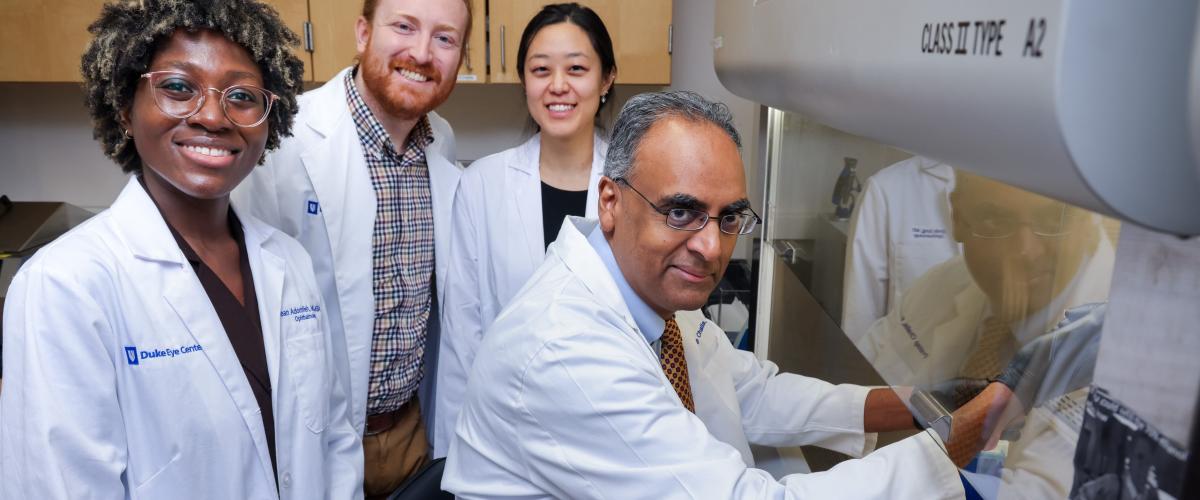
Duke Ophthalmology residents not only receive world-class training in medical and surgical treatment of eye diseases, but have the opportunity to participate in research with our world-renowned faculty, present their findings at national and international scientific sessions, and publish in top scientific journals.
Each resident is required to complete a research project each year. The research may be of a clinical nature or may involve laboratory work. Each resident will present their project during the annual Ophthalmology Trainee Day Scientific Sessions.
All proposed research projects involving laboratory facilities must first be cleared by the Residency Program Director. In addition, each resident should have at least one senior faculty member as co-author of the project. In the event that the study is deemed worthy of presentation at a national meeting, such as ARVO or the AAO, the abstract must be approved by the advising faculty member prior to its submission to organizers of the meeting. Likewise, if a manuscript is submitted for publication, the senior staff member must approve the manuscript before its submission.
During a resident's third year of training at Duke Ophthalmology, they are required to participate in an eight-week elective. This unique rotation at Duke offers residents the opportunity to conduct basic science or clinical research at Duke, spend time studying ophthalmology abroad, or pursue other related activities. Previous residents have used this time to travel abroad to eye hospitals in Tanzania, East Africa, spend time working for the FDA on Capitol Hill, and collaborate with other Duke departments on biomedical engineering endeavors.
Trainee Research Funds
Karickhoff Trainee Research Publishing Fund
The Karickhoff Trainee Research Publishing Fund, which will make its initial grants in 2025, seeks to further encourage trainees to pursue innovative ophthalmology research by underwriting the publishing fees charged by research journals.
Ophthalmology Trainee Research Fund
The Ophthalmology Trainee Research Fund, launched in 2024, awards funding to Duke Ophthalmology residents and fellows to support their innovative research.
Award Recipients
 2024
2024
Jean Adomfeh, MD, MBA
The goal of this primary retrospective study is to understand patterns of sickle cell retinopathy (SCR) prevalence and severity in an urban cohort at a major medical center via statistical analyses to potentially identify those most at risk and identify potential preventative measures. This study aims to utilize data from Duke Health to describe the correlation between patient characteristics, clinical data, eye examination frequency, treatment history, and SCR prevalence and severity. A secondary objective includes the potential for predictive modeling of SCR development.